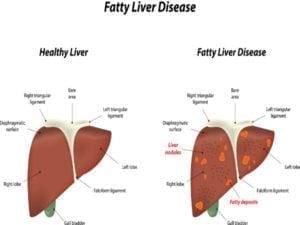7 Easy Ways to lower blood sugar levels
Regularly checking up on the blood sugar levels and seeing the numbers right in line is a holy grail for people with diabetes. Also, it might keep you wondering how to bring the blood sugar levels in control? Well, we all are aware that high blood sugar occurs when the body doesn’t make enough or effectively use insulin (a hormone that regulates blood glucose and helps it enter your cells for energy) leading to a condition of high blood sugar. This high blood sugar (hyperglycemia) is associated with diabetes. Diabetes is a progressive disease and which is why you really need to bring about some serious lifestyle changes in order to prevent the situation from getting any worse. Below discussed are the top seven easy ways that can help you lower blood sugar levels naturally.
- Manage your Carbs Intake
Intaking how many carbs per meal are ideal? The carbs consumption is tailored to each individual. We all know that having carbs in excess quantities can cause insulin levels to fluctuate and further may reduce insulin sensitivity. For this reason, it is recommended to follow a low-carb diet as it is beneficial in controlling blood sugar levels in the long run. Also, don’t mistake carbs found only in bread, potatoes, or rice. Carbs are found in fruits, vegetables, sweets, and dairy products too. So, it is recommended that you control your carb intake by taking all of this into consideration.
- Manage your stress levels
Stress management is crucial in order to maintain healthy blood sugar levels as whenever you’re stressed your blood sugar tends to rise and insulin levels fall, few hormones rise leading to increased release of glucose from the liver that ends up in the bloodstream and can cause disturbance for up to 8 hours. A combination of yoga and meditation helps people lower their blood sugar levels, which further leads to reduced levels of stress and lower blood glucose levels. Besides this going for a walk, taking a few deep breaths, listening to your favourite song or doing any activity that helps reduce stress is beneficial in helping you regulate your blood sugar levels.
- Drink more water
Drinking enough water helps in regulating blood sugar levels and also prevent dehydration and helps the kidneys flush out excess sugar through urine. Keeping yourself hydrated help rehydrate the blood, lowers blood sugar levels, and reduce diabetes risk.
- Never skip breakfast
We’ve all heard that breakfast is the day’s most important meal and therefore one should never skip breakfast, in fact, should relish one like a king. The notion is true especially for people with diabetes as they are at potential risk for hypoglycemia. Eating breakfast helps in avoiding potential highs related to fasting for too long a period of time and also may help overweight people with type 2 diabetes shed those extra pounds
- Exercise Regularly & Ramp up your movement each day
Exercise, relaxation and meditation are significantly proven to show lowered blood sugar levels. Regular exercise helps an individual to maintain a moderate weight and increase insulin sensitivity. Moreover, exercising regularly helps your muscles use blood sugar for energy and muscle contraction and also help insulin secretion problems in chronic cases of chronic diabetes.
- Increase Fibre Intake
Fibre is yet another nutrient that you’ll want to keep an eye on. There are two types of fibres: Soluble and Insoluble. While both are important for the body, soluble fibre tends to play a great role in helping manage your blood sugar levels. Also, a high fibre diet helps better manage type 1 diabetes by improving the body’s ability to regulate blood sugar and reducing blood sugar lows. Foods that are high in fibre include:
- Vegetables
- Fruits
- Legumes
- Whole grains
- Implement Portion Control
Practising portion control helps in regulating the calorie intake thereby helping you maintain a healthy weight. As a consequence, weight management promotes healthy blood sugar levels and has been observed to reduce the risk of developing type 2 diabetes. Monitoring your serving sizes also plays a crucial role in reducing calorie intake and subsequently blood sugar spikes. Here are some helpful tips for managing portion sizes:
- Use smaller plates
- Measure and weigh portions
- Avoid all-you-can-eat restaurants
- Read food labels and check the serving sizes
- Ensure that you eat slowly
Be sure to get in touch with your doctor before making any lifestyle changes or trying to include any new supplements or foods in your diet. This is particularly important in the case if you have blood sugar management problems or are under medication for diabetes. It’s recommended to work with your healthcare provider in order to create and start a treatment plan for you as soon as possible involving all the essential lifestyle changes.

